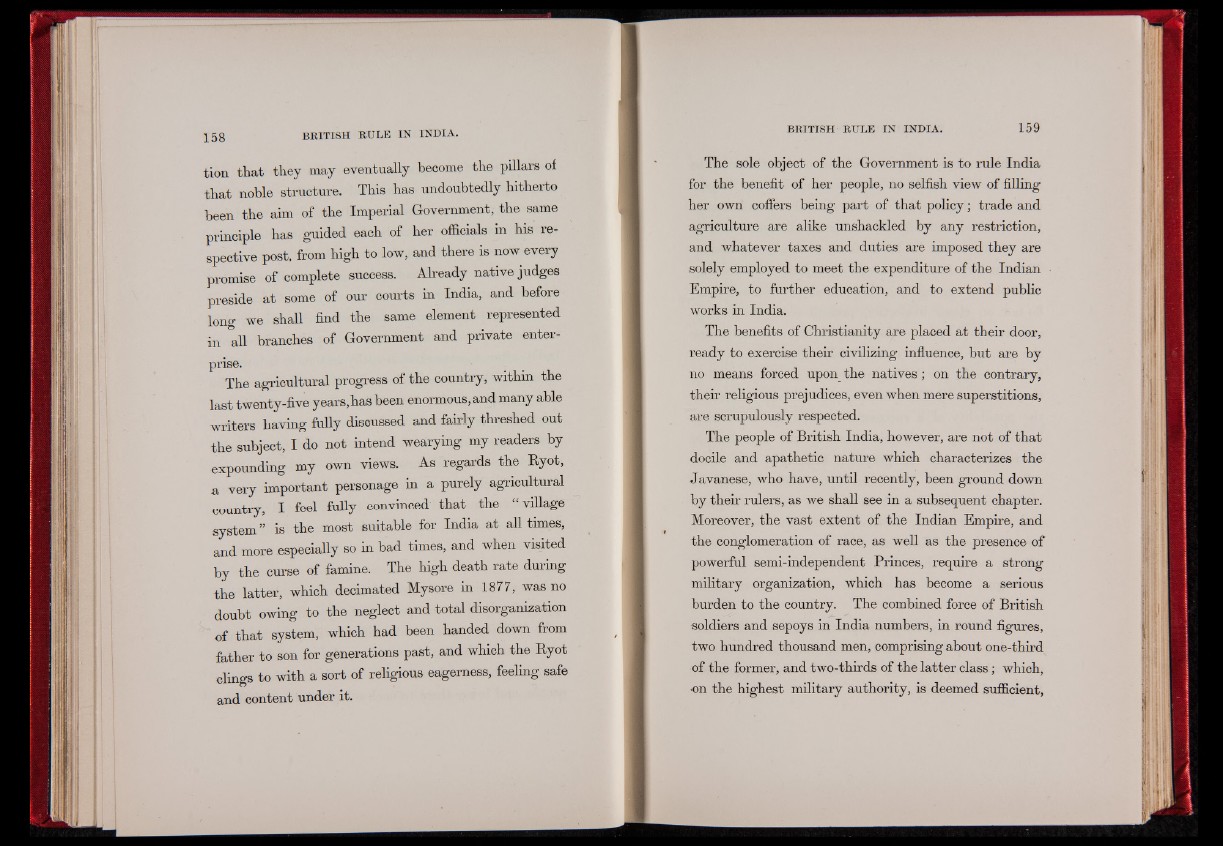
tion that they may eventually become the pillars of
th a t noble structure. This has undoubtedly hitherto
been the aim of the Imperial Government, the same
principle has guided each of her officials in his respective
post, from high to low, and there is now every
promise of complete success. Already native judges
preside at some of our courts in India, and before
long we shall find the same element represented
in all branches of Government and private enterprise.
The agricultural progress of the country, within the
last twenty-five years,has been enormous, and many able
writers having fully discussed and fairly threshed out
the subject, I do not intend wearying my readers by
expounding my own views. As regards the Ryot,
a very important personage in a purely agricultural
country, I feel fully convinced that the “ village
system ” is the most suitable for India at all times,
and more especially so in bad times, and when visited
by the curse of famine. The high death rate during
the latter, which decimated Mysore in 1877, was no
doubt owing to the neglect and total disorganization
of that system, which had been handed down from
father to son for generations past, and which the Ryot
clings to with a sort of religious eagerness, feeling safe
and content under it.
The sole object of the Government is to rule India
for the benefit of her people, no selfish view of filling
her own coffers being part of that policy; trade and
agriculture are alike unshackled by any restriction,
and whatever taxes and duties are imposed they are
solely employed to meet the expenditure of the Indian
Empire, to further education, and to extend public
works in India.
The benefits of Christianity are placed at their door,
ready to exercise their civilizing influence, but are by
no means forced upon the natives; on the contrary,
their religious prejudices, even when mere superstitions,
a.re scrupulously respected.
The people of British India, however, are not of that
docile and apathetic nature which characterizes the
Javanese, who have, until recently, been ground down
by their rulers, as we shall see in a subsequent chapter.
Moreover, the vast extent of the Indian Empire, and
the conglomeration of race, as well as the presence of
powerful semi-independent Princes, require a strong
military organization, which has become a serious
burden to the country. The combined force of British
soldiers and sepoys in India numbers, in round figures,
two hundred thousand men, comprising about one-third
of the former, and two-thirds of the latter class; which,
•on the highest military authority, is deemed sufficient,